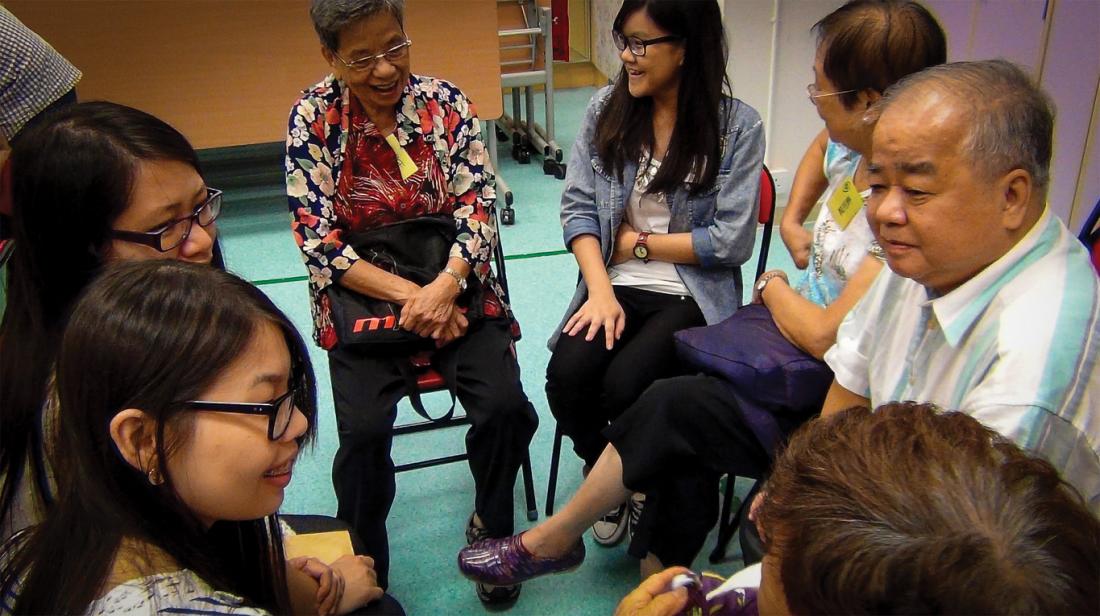A multigenerational learning environment fostered at Hong Kong Baptist University (HKBU) proved beneficial for both students and older adults.
Hong Kong Baptist University (HKBU) (HKBU) is exploring how to enrich education beyond the classroom by encouraging university students to interact with older adults in the community. Educators theorize that an intergenerational learning environment that nurtures interpersonal communication and inspires self-inspection can ultimately lead to a more wholesome education.
This sort of programme can benefit older adults as well.
“We wanted to address a societal need to keep older adults in the community active, and an educational need to broaden student knowledge and raise social awareness,” says Atara Sivan, who heads the Department of Education Studies at HKBU. “In doing so, we hope to reduce the generational gap that has been forming in Hong Kong society.”
The learning group was designed as a ‘community of practice’ (CoP): a group of people who work together to improve their understanding of a shared interest or passion, in this case about healthy living and community involvement. The group included high school and university students, university staff and professionals, and older adults from a community centre.
At the end of the first year, analyses of individual and group interviews, student bimonthly reflection journal entries, and notes from meetings were conducted to assess the project’s progress. The researchers reported their observations in the Learning Communities Journal.
Although faculty guided the formation of the group, a key to the project’s success was the rotation of leadership of group activities among the students, who organically improved their leadership skills as teams assisted and learned from each other. They were able to incorporate collective input from faculty into their plans, rather than simply following advice or instructions. University students were given a degree of autonomy as they mentored high school participants in planning activities, and this served to improve self-confidence and promote a sense of project ownership.
The older adults reported that they learned skills related to exercise and craftwork, such as making bags. It was during these activities that students had the opportunity to interact and converse with the older adults. These interactions helped the students see that other viewpoints can help them succeed in life just as much as what they learn in school. Students came to understand that university classes are only one kind of education, and that they can learn a lot from the experiences of people who never attended college.
As one student put it, “[the older adults] know a lot and they taught us how to approach things in life. Those were really useful lessons... The project provided an opportunity for me to learn about different things—not only history, but also [the older adults’] views, attitudes to life, how they view us and the universities and so forth. Learning about their views is something I deem most valuable for me.”
Additional funding has enabled the programme to expand, providing opportunities for more university students to develop their leadership skills.
For further information, contact:
Professor Atara Sivan
Education Studies
Hong Kong Baptist University (HKBU)
E-mail: [email protected]
Professor Vicky Tam
Education Studies
Hong Kong Baptist University (HKBU)
E-mail: [email protected]



